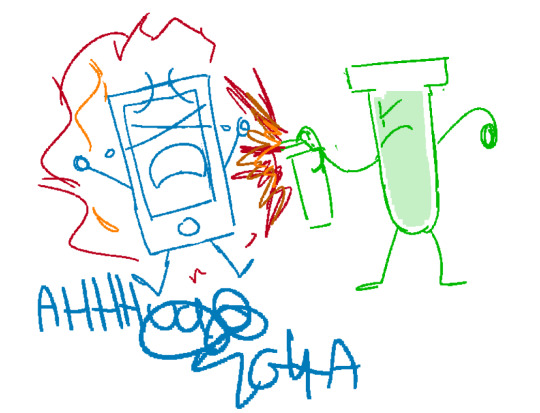#virus testing
Explore tagged Tumblr posts
Text
How Virology Testing Labs in Abu Dhabi Help Pharmaceutical Companies with Clinical Trials? | +971 554747210
Pharmaceutical companies are at the forefront of medical innovation, developing new drugs and vaccines that save lives worldwide. Clinical trials, a critical phase in this development process, require precise and reliable virology testing to ensure safety, efficacy, and regulatory compliance. In Abu Dhabi, virology testing labs have become vital partners for pharmaceutical companies engaged in clinical trials, providing advanced testing services that meet global standards.
This blog explores how virology testing lab in Abu Dhabi support pharmaceutical companies during clinical trials, highlighting their key roles, services, and benefits.
The Importance of Virology Testing in Clinical Trials
Clinical trials are rigorous research studies conducted to evaluate new medical products in human subjects. When these products involve viral infections, vaccines, or antiviral drugs, virology testing is crucial to:
Detect and quantify viral presence in patient samples.
Monitor viral load changes throughout the trial.
Assess immune responses to investigational products.
Ensure participant safety by early identification of viral infections or reactivations.
Generate robust data for regulatory submissions.
Given these demands, pharmaceutical companies rely heavily on specialized virology testing labs with the expertise and infrastructure to deliver accurate, reproducible, and timely results.
Why Pharmaceutical Companies Choose Virology Testing Labs in Abu Dhabi
Abu Dhabi offers several advantages that make it a preferred hub for pharmaceutical virology testing:
State-of-the-art laboratories: Equipped with cutting-edge technologies such as Real-Time PCR, Next-Generation Sequencing (NGS), and serological assays.
Accreditation and compliance: Labs meet international quality standards, including ISO 15189 and GCLP (Good Clinical Laboratory Practice), ensuring data integrity and regulatory acceptance.
Experienced virologists and technicians: Skilled personnel understand the nuances of clinical trial testing and complex viral diagnostics.
Strategic location: Abu Dhabi serves as a gateway between East and West, facilitating international collaboration and faster sample logistics.
Regulatory support: Local labs work closely with UAE health authorities, streamlining approvals and compliance with global regulatory bodies like FDA, EMA, and WHO.
Key Services Offered by Virology Testing Labs for Clinical Trials
1. Molecular Testing for Viral Detection and Quantification
Molecular assays, primarily Real-Time PCR (RT-PCR), are the gold standard in virology testing during clinical trials. They enable:
Sensitive detection of viral nucleic acids in biological samples (blood, swabs, tissues).
Quantification of viral load, essential for evaluating antiviral drug efficacy or vaccine impact.
Genotyping and mutation analysis to track viral variants or resistance markers.
Abu Dhabi virology labs utilize validated PCR platforms with strict quality control to ensure consistent performance throughout trial phases.
2. Serological Testing for Immune Response Assessment
Serology tests detect antibodies (IgM, IgG) produced in response to viral infections or vaccination. These tests help pharmaceutical companies to:
Determine baseline immunity of trial participants.
Monitor seroconversion and antibody titers post-vaccination or treatment.
Evaluate durability of immune responses over time.
Labs in Abu Dhabi offer ELISA, chemiluminescence, and neutralization assays tailored to the specific virus and trial design.
3. Viral Culture and Phenotypic Analysis
While less common, viral culture remains important in some clinical trials for isolating live virus and studying phenotypic characteristics, including:
Susceptibility to investigational antiviral agents.
Viral replication kinetics.
Specialized virology labs in Abu Dhabi maintain biosafety level 2 and 3 facilities needed for safe culture and handling of infectious agents.
4. Next-Generation Sequencing (NGS)
NGS technologies are increasingly used in clinical trials to:
Deeply characterize viral genomes.
Identify emerging mutations and variants that may impact treatment outcomes.
Support personalized medicine approaches.
Abu Dhabi labs provide comprehensive NGS services with rapid data analysis and reporting capabilities.
Ensuring Quality and Compliance in Clinical Trial Testing
Pharmaceutical companies must comply with stringent regulatory requirements when conducting clinical trials. Virology testing labs in Abu Dhabi support this by:
Following Good Clinical Laboratory Practice (GCLP) guidelines ensuring laboratory processes meet trial protocols.
Implementing ISO 15189 accreditation, guaranteeing quality management systems and technical competence.
Maintaining strict chain of custody and sample tracking to ensure data integrity.
Providing audit support and documentation for sponsors and regulatory agencies.
Participating in external quality assessment (EQA) programs to benchmark performance.
These practices help pharmaceutical companies produce reliable data that regulators worldwide trust.
Collaborative Role in Trial Design and Protocol Development
Beyond testing, many virology labs in Abu Dhabi collaborate with pharmaceutical sponsors during the clinical trial planning phase by:
Advising on sample collection methods and timing to optimize viral detection and immune response assessment.
Designing customized testing panels aligned with trial endpoints.
Assisting with statistical planning for virology data analysis.
Ensuring compliance with local and international biosafety regulations.
Such partnerships enhance trial efficiency and data quality.
Rapid Turnaround Times for Timely Decision-Making
Clinical trials operate on tight schedules, and timely virology results are essential for:
Monitoring participant safety in real-time.
Making go/no-go decisions on trial progression.
Supporting interim analyses for regulatory reporting.
Virology testing labs in Abu Dhabi are equipped with automation and workflow optimization to deliver fast turnaround times—often within 24 to 48 hours for molecular assays—without compromising accuracy.
Case Study: Supporting COVID-19 Vaccine Trials in Abu Dhabi
The COVID-19 pandemic underscored the critical role of virology testing labs in clinical trials. Abu Dhabi’s labs swiftly adapted to meet the demand for:
Large-scale RT-PCR testing to monitor viral load in vaccine recipients.
Serological assays to measure antibody responses post-vaccination.
Variant analysis via NGS to track emerging strains affecting vaccine efficacy.
Pharmaceutical companies developing COVID-19 vaccines leveraged these capabilities to accelerate trial phases and achieve rapid regulatory approvals.
Cost-Effectiveness and Local Expertise
Partnering with local virology testing labs in Abu Dhabi reduces logistical costs associated with international shipping and customs delays. Additionally, local expertise helps navigate UAE-specific regulatory and cultural considerations, resulting in smoother trial operations.
Conclusion
Virology testing labs in Abu Dhabi are indispensable allies for pharmaceutical companies conducting clinical trials involving viral pathogens. Their advanced technologies, adherence to international quality standards, expert personnel, and collaborative approach help ensure that clinical trial data is accurate, timely, and regulatory-compliant.
By choosing a reputable virology testing lab in Abu Dhabi, pharmaceutical companies benefit from streamlined workflows, reliable viral diagnostics, and invaluable scientific support, ultimately contributing to the successful development of innovative medicines and vaccines that improve global health.
0 notes
Text
How Advanced Technology is Transforming Virus Testing Labs
In recent years, the demand for accurate, efficient, and timely virus testing has skyrocketed, largely due to global health challenges such as the COVID-19 pandemic. Virus testing labs are at the forefront of combating infectious diseases, ensuring the safety of populations, and helping public health authorities control outbreaks. However, with advancements in technology, these labs are undergoing significant transformations that are enhancing their capabilities. In this blog, we will explore how advanced technology is reshaping virus testing lab, improving efficiency, and contributing to better health outcomes.
1. High-Throughput Testing Systems
One of the most notable technological advancements in virus testing labs is the development of high-throughput testing systems. These systems allow labs to process large volumes of samples in a short amount of time, making them ideal for managing widespread outbreaks. Traditional virus testing methods can be time-consuming and labor-intensive, often resulting in long wait times for results. High-throughput systems, on the other hand, enable labs to analyze hundreds or even thousands of samples simultaneously.
By automating much of the process, high-throughput testing reduces the burden on lab technicians and accelerates the time it takes to return test results. This is especially important during outbreaks, where quick results are crucial for isolating infected individuals and preventing further spread. Additionally, high-throughput systems increase the overall efficiency of virus testing labs, making them more equipped to handle surges in demand.
2. PCR Technology and Advancements
Polymerase Chain Reaction (PCR) testing remains one of the gold standards for virus detection. Over the years, PCR technology has become faster, more accurate, and more accessible. The continuous evolution of PCR-based testing technologies has improved virus detection in several key areas.
For instance, real-time PCR, or quantitative PCR (qPCR), enables virus testing labs to detect viral RNA more accurately and in real-time. This innovation has become vital in detecting viruses such as SARS-CoV-2, the virus responsible for COVID-19. With real-time PCR, labs can quantify the viral load, which not only helps in diagnosing active infections but also in determining the stage of the infection. Furthermore, multiplex PCR technology allows labs to test for multiple viruses simultaneously, reducing the time and cost associated with separate tests.
These advancements in PCR technology enable faster, more reliable testing, which is essential in controlling the spread of infectious diseases and managing public health crises.
3. Artificial Intelligence (AI) and Machine Learning
Artificial Intelligence (AI) and Machine Learning (ML) have become invaluable tools in virus testing labs, revolutionizing how data is analyzed and interpreted. AI algorithms can process vast amounts of data much faster and more accurately than humans, helping lab technicians identify trends, make predictions, and detect anomalies that may otherwise go unnoticed.
In the context of virus testing, AI and ML can analyze test results, cross-reference data from multiple sources, and even predict the likelihood of an outbreak based on current trends. AI systems can also be used to improve the design of diagnostic tests, optimizing parameters such as sensitivity, specificity, and cost-effectiveness.
Moreover, AI-based diagnostic tools are being integrated with PCR and other molecular testing methods to automate the process of reading results, reducing human error and increasing the speed of diagnosis. These technologies enable labs to deliver faster, more accurate results, which is especially crucial during outbreaks or emergencies.
4. Point-of-Care Testing Devices
Point-of-care (POC) testing devices are transforming the virus testing landscape by enabling rapid testing outside of traditional laboratory settings. These portable devices are used to detect viruses such as flu, COVID-19, and even HIV at the point of care, meaning that tests can be conducted in clinics, airports, or other public spaces.
Advancements in POC technology have made these devices more accurate, easier to use, and quicker to produce results. With results available within minutes, POC testing allows for quicker interventions, reducing the time it takes to isolate infected individuals and prevent further transmission.
In addition to speed, POC testing devices have become more cost-effective, which makes them accessible to underserved or remote populations. This is particularly important in ensuring equitable access to virus testing, especially in regions with limited healthcare infrastructure. These devices are also less reliant on specialized lab equipment, which makes them ideal for use in areas with limited resources.
5. Next-Generation Sequencing (NGS)
Next-generation sequencing (NGS) is a powerful tool used in virus testing labs to analyze viral genomes. This technology enables labs to sequence the genetic material of viruses with high accuracy and efficiency. NGS plays a crucial role in understanding how viruses evolve, mutate, and spread, providing vital information for researchers and healthcare providers.
For example, during the COVID-19 pandemic, NGS was used to track variants of the virus by sequencing its genome and identifying mutations. By understanding how the virus is changing, scientists and public health authorities can adapt public health strategies, modify vaccines, and update diagnostic tests.
NGS also helps in detecting viral infections that may not be captured by traditional testing methods. It can identify novel viruses or previously undiagnosed pathogens, which is essential for preventing future outbreaks. As NGS becomes more affordable and accessible, it is expected to play an even larger role in the diagnosis and surveillance of viral diseases worldwide.
6. Blockchain Technology for Data Security
As virus testing labs generate vast amounts of sensitive patient data, the importance of data security cannot be overstated. Blockchain technology is increasingly being used to secure test results and ensure the integrity of lab data.
Blockchain’s decentralized nature means that test results can be stored securely and remain tamper-proof. It provides a transparent and immutable record of each test result, which is crucial in maintaining trust and accountability in the testing process. In addition, blockchain can ensure that data is shared only with authorized individuals or organizations, preventing unauthorized access to sensitive health information.
By implementing blockchain technology, virus testing labs can strengthen data security, improve privacy compliance, and create a more transparent system for tracking and reporting test results.
7. Robotics in Virus Testing Labs
Robotics is another transformative technology in virus testing labs. Robotic systems are used to automate repetitive tasks, such as sample handling, extraction, and preparation. These systems can operate continuously without breaks, improving throughput and reducing human error.
In addition, robotics can help labs scale their operations during times of increased demand, such as during an outbreak or pandemic. By automating routine tasks, robotic systems allow lab technicians to focus on more complex aspects of testing and analysis, improving the overall efficiency of the lab.
The use of robotics in virus testing labs is not only limited to sample processing but also includes the delivery of test results, packaging, and even logistics. This reduces the manual workload and enhances the speed and accuracy of testing, which ultimately benefits patients and healthcare systems.
8. Telemedicine Integration for Remote Consultations
Telemedicine has become an essential part of healthcare delivery, especially in the wake of the COVID-19 pandemic. Virus testing labs are integrating telemedicine capabilities to allow patients to consult healthcare providers remotely and receive results without having to visit a clinic or hospital.
Telemedicine platforms can link patients to healthcare professionals who can advise them on the next steps after receiving their test results. Additionally, remote consultations reduce the risk of spreading infections in healthcare settings, allowing people to receive care from the safety of their homes.
As virus testing labs continue to integrate telemedicine, patients will have easier access to care and results, improving their overall experience and reducing the burden on healthcare facilities.
9. AI-Powered Prediction Tools
Predicting the future course of viral outbreaks is a critical aspect of public health preparedness. Advanced technology is enabling virus testing labs to harness the power of predictive analytics powered by AI. These tools can analyze large datasets, such as infection rates, social behaviors, and environmental factors, to forecast future outbreaks and identify areas at risk.
By using predictive analytics, virus testing labs can provide valuable insights to governments, healthcare providers, and businesses, helping them make informed decisions regarding public health measures, vaccination campaigns, and resource allocation.
Conclusion
The future of virus testing labs is undoubtedly tied to the continued integration of advanced technologies. From high-throughput testing systems to AI-driven data analysis, these innovations are enhancing the capabilities of virus testing labs and enabling faster, more accurate diagnoses. As the world continues to face new health threats, technology will play an increasingly vital role in preventing the spread of infectious diseases and ensuring the safety of populations globally. With these advancements, virus testing labs are becoming more efficient, accessible, and impactful, ultimately contributing to better health outcomes for all.
0 notes
Text


sonic fanart be upon ye
#sonic the hedgehog#idw sonic#lanolin the sheep#tangle the lemur#have to study for dosage calc test tomrrow...haha... ill post spiderman art real soon#but the sonic virus has infected me again so i ended up mostly drawing that all break...#and thus concludes holiday break and the beginning of the second semester...bye bye until april in a little bit...maybe???#the doodles on top are from august last year o_O
1K notes
·
View notes
Text

#covid isn't over#h5n1 bird flu#covid 19#covid#h5n1 virus#h5n1#bird flu pandemic#bird flu#yallmasking#yall masking#wear a mask#mask up#still masking#still isolating#still testing#still coviding#still living#sars cov 2
509 notes
·
View notes
Text
We as a fandom forgot about ILY.COLIN too quickly

Non-corrected ver undercut

This is the first piece I've placed lots of efforts into in a while!! Feel free to zoom in, tumblr tends to eat the quality :]
#lil' doodle#this is the third time I try to send this. pls.#dhmis#dhmis teachers#actual cake#computer dhmis#dhmis computer#dhmis colin#colin dhmis#colin the computer#lyric art#artists on tumblr#dont hug me im scared#colin#(i'm very proud of this aaaa)#I hc he doesnt just transforms into a particularly fancy object#<- the virus just happens to have a VERY specific fashion test#plsss tumblr. pllsssss
146 notes
·
View notes
Text




a few things LAWL!
#fryer art#inanimate insanity#inanimate insanity fanart#ii fanart#computer virus cheesy#test tube ii#cheesy ii#mephone4 ii#mephone4 ii fanart#test tube ii fanart#cheesy ii fanart#silver spoon ii#silver spoon ii fanart#testphone4#possibly.
394 notes
·
View notes
Text
ART UPDATE! 7/7 ◈4/14/25◈
Last one because I'm finally done and it's 4 in the morning... more to come soon!
How fitting. Also thankfully I fucking saved my art because I had a packing list on the back and forgot these new pages are thinner like a dumbass.


First time I've had an artbook and it's...... going okay... / There he is again!

Teehee.


Okay I'm going the fuck to sleep now and definitely not watching Samurai Jack instead, wait what? NOthinG-- Good night fellow night owls! See what I did there Splatoon fans? Heh.
#iza#gal3xystar#masoqueen#art#drawing#traditional art#persona#izel#black hat#villainous#doodles#pen tests#splatoon#splatoon 3#virus#villanos#team night#wip
20 notes
·
View notes
Text




Um ok so basically earlier this year I reaaally wanted to finally get into candle-making so I made a half joking post like “hi if anyone gets me candle molds from my wish list I’ll draw jelix” and someone bought out my Whole wish list so. Yeah




Here’s some of the results from at that time!!!
#the walten files#jelix#jack walten x felix kranken#whew#art#digital art#procreate#twf#the walten files fanart#Jack x felix x Rosemary#so yeah !#amazing times still very thankful#a friend paid for me to fully develop that last drawing soooo yes guess who’s gonna finish that in the coming months since im still a dad#tad** slow lol im working on my speed tho rest assured#lolllll#im sick rn I’ve been sick for over a week haha but ill be fine just a virus and tested negative for covid#don’t work cashier guys
47 notes
·
View notes
Note
i still mask because i have conditions that share symptoms with covid, and i cant afford to get tested (rapid test or pcr) every time i have a single symptom (also covid spreads when your asymptomatic, i dont want to spread illness when im feeling fine either)
Hey anon, thank you for sharing! You're absolutely valid and right!
And just in case you or anyone else that sees this isn't aware, I would encourage you to reach out to your local mask bloc and/or covid action group to inquire if they have any free rapid tests (and free masks) that they're able to give out!
Free PCR testing for the public should be a right though regardless, so I encourage everyone to sign this petition to Congress and the CDC, urging them to 1) make free PCR tests available for all, and to 2) demand the CDC to get back to tracking and reporting COVID transmission.
#the privatization of pcr tests and rapid tests was a grave mistake.#they're apparently bringing back free rapid tests in september tho in the us. but i detest the fact they keep stopping and restarting it.#and then ONLY giving 4 tests for the entirety of the year ?#they're reeeaally trying to make this seem like a seasonal virus.#thank you for sharing 😷💛#i still mask because#covid isn't over#covid is airborne#covid pandemic#covid awareness#covid#ask queue
44 notes
·
View notes
Text
I'm sorry.

#first time (trying) to render!!#idk if this actually counts as rendering tho#i hope it does#anyway#i was thinking#like#what if during the time both sun and moon had the virus#the were controlled to “bring” the kids to vanny themselves?#what if they had a part in the “tests”?#what if#the moondrops didn't work#or they just pretended to take one?#what if they were awake#what if they tried to fight back?#what then?#ANYWAYS#how are ya'll doing today#i hope well <333#fnaf#dca#sundrop#moondrop#sundrop fnaf#moondrop fnaf#my art
23 notes
·
View notes
Text
How Do Virology Testing Labs in Abu Dhabi Support Early Detection of Viral Outbreaks? | +971 554747210
In today’s interconnected world, early detection of viral outbreaks is essential for preventing widespread illness and safeguarding public health. Virology testing labs play a crucial role in this global health defense system by identifying viral pathogens rapidly and accurately. In Abu Dhabi, a leading healthcare and scientific hub in the Middle East, virology testing labs are at the forefront of detecting viral outbreaks early, enabling swift response and containment.
This blog explores how virology testing lab in Abu Dhabi support early detection of viral outbreaks, detailing their capabilities, technologies, collaborations, and impact on public health management.
The Importance of Early Detection in Viral Outbreaks
Early detection of viral outbreaks allows health authorities to:
Implement quarantine and isolation measures before widespread transmission occurs.
Conduct contact tracing to identify and monitor exposed individuals.
Accelerate vaccine development and distribution for at-risk populations.
Mobilize public health resources efficiently to affected regions.
Reduce mortality and morbidity rates through timely interventions.
In Abu Dhabi, where international travel and trade converge, the risk of viral diseases entering the community is significant. Hence, the city invests heavily in advanced virology testing labs that can detect outbreaks at the earliest stage.
Capabilities of Virology Testing Labs in Abu Dhabi
1. Comprehensive Viral Diagnostic Services
Virology labs in Abu Dhabi provide a wide range of diagnostic services that enable the identification of diverse viruses, including:
Respiratory viruses (e.g., influenza, RSV, SARS-CoV-2)
Bloodborne viruses (e.g., HIV, hepatitis B and C)
Emerging and re-emerging viruses (e.g., MERS-CoV, Zika, Dengue)
These labs use sophisticated molecular techniques such as polymerase chain reaction (PCR), next-generation sequencing (NGS), and antigen/antibody detection to accurately identify viral pathogens in clinical samples.
2. Rapid Turnaround Time
One of the key factors in early outbreak detection is the speed at which test results are delivered. Abu Dhabi’s virology testing labs are equipped with automated systems and streamlined workflows that enable rapid turnaround times, often within hours, allowing health officials to act quickly.
3. High Sensitivity and Specificity
Advanced molecular diagnostics and quality assurance practices ensure that Abu Dhabi labs maintain high sensitivity (detecting even low viral loads) and specificity (accurately identifying the virus without false positives). This precision reduces delays caused by repeat testing or misdiagnosis.
Advanced Technologies Driving Early Detection
1. Real-Time PCR (RT-PCR)
RT-PCR remains the gold standard for viral detection due to its ability to detect viral RNA/DNA with high accuracy and speed. Abu Dhabi labs utilize RT-PCR extensively for testing respiratory viruses and emerging pathogens.
2. Next-Generation Sequencing (NGS)
NGS technology allows labs to sequence the entire viral genome rapidly, facilitating:
Identification of new viral strains or mutations.
Monitoring of viral evolution during outbreaks.
Tracking transmission chains for epidemiological insights.
This technology was pivotal during the COVID-19 pandemic for identifying variants.
3. Point-of-Care Testing (POCT) and Mobile Labs
Some virology labs in Abu Dhabi support mobile testing units and point-of-care devices that enable testing outside conventional lab settings, such as airports and community clinics. These rapid tests help screen travelers and symptomatic individuals immediately.
Integration with Public Health Systems
Virology testing labs in Abu Dhabi work closely with government agencies like the Department of Health – Abu Dhabi (DOH) and the National Emergency Crisis and Disaster Management Authority (NCEMA) to ensure early warning systems are robust and responsive.
1. Data Sharing and Surveillance Networks
Labs feed real-time test results into centralized surveillance databases, enabling public health officials to monitor infection trends continuously. This integration supports:
Early outbreak detection.
Identification of hotspots and clusters.
Informing policy decisions such as travel restrictions and lockdowns.
2. Collaboration with Hospitals and Clinics
Virology labs maintain strong partnerships with healthcare providers for efficient sample collection and prompt testing. This network ensures that suspected cases are swiftly diagnosed and isolated.
Role in Outbreak Preparedness and Response
1. Routine Screening and Sentinel Surveillance
Regular screening of high-risk groups, such as healthcare workers and travelers, helps labs detect viral activity before it escalates into a larger outbreak.
Sentinel surveillance programs, where selected sites continuously monitor viral infections, provide early signals of unusual viral activity.
2. Research and Variant Tracking
Virology labs conduct ongoing research on viral pathogens, identifying mutations that could affect transmissibility or vaccine efficacy. Early identification of such variants enables timely updates to public health strategies.
Biosafety and Quality Assurance: Ensuring Reliable Early Detection
Maintaining biosafety and quality assurance standards is essential to prevent laboratory-acquired infections and ensure reliable results. Abu Dhabi’s virology labs adhere to ISO 15189 accreditation and follow WHO biosafety guidelines to maintain the highest standards in sample handling and testing procedures.
Case Study: COVID-19 Response in Abu Dhabi
During the COVID-19 pandemic, virology testing labs in Abu Dhabi demonstrated their critical role in early detection by:
Implementing large-scale RT-PCR testing facilities.
Deploying mobile testing units for remote access.
Sequencing viral genomes to identify and track variants.
Coordinating with health authorities for contact tracing and isolation measures.
These efforts helped Abu Dhabi maintain lower infection rates and informed a phased reopening of the economy.
The Future of Virology Testing Labs in Abu Dhabi
Looking ahead, Abu Dhabi is investing in:
Artificial Intelligence (AI) for faster analysis of viral test data.
Integrated digital platforms for seamless data sharing across healthcare systems.
Enhanced mobile labs to reach underserved areas rapidly.
Expanded research collaborations with global health organizations.
These innovations will further strengthen early detection capabilities and preparedness for future viral outbreaks.
Conclusion
Virology testing labs in Abu Dhabi are indispensable pillars in the early detection and management of viral outbreaks. Their cutting-edge technology, rapid diagnostic capabilities, integration with public health systems, and stringent quality controls enable timely identification of viral pathogens. This early detection facilitates swift containment measures, ultimately protecting public health and minimizing economic disruption.
For healthcare providers, policymakers, and the public, relying on Abu Dhabi’s accredited virology testing labs ensures accurate diagnostics and a resilient response system to emerging viral threats — a vital asset in today’s global health landscape.
0 notes
Text
The Role of Virus Testing Labs in Food Safety and Contamination Prevention
In an increasingly interconnected world, food safety has become a paramount concern for consumers and regulators alike. With foodborne illnesses affecting millions globally each year, the role of virus testing labs in ensuring the safety of food products is more crucial than ever. This blog will explore how virus testing labs contribute to food safety and contamination prevention, highlighting their importance in safeguarding public health.
Understanding Foodborne Viruses
Foodborne viruses, such as norovirus and hepatitis A, are significant causes of illness worldwide. These viruses can contaminate food at any stage of the supply chain, from production to consumption. Contamination can occur through various means, including:
Poor hygiene practices: Food handlers who do not adhere to strict hygiene protocols can easily transmit viruses.
Contaminated water: Water used in irrigation or food processing can harbor viruses that make their way into the food supply.
Cross-contamination: Viruses can spread from one food product to another, particularly when raw and cooked foods are not properly separated.
Due to the potential health risks associated with these viruses, proactive measures must be taken to ensure the safety of food products.
The Function of Virus Testing Labs
1. Early Detection of Contaminants
Virus testing lab play a critical role in the early detection of contaminants in food products. By employing advanced testing methodologies, these labs can identify viral pathogens quickly and accurately. Key testing methods include:
Molecular testing: Techniques such as polymerase chain reaction (PCR) are used to detect viral genetic material, allowing for rapid identification of pathogens.
Cell culture methods: These methods help isolate viruses from food samples, enabling researchers to study the viruses' behavior and potential impact on human health.
Early detection is vital for preventing outbreaks and ensuring that contaminated products do not reach consumers.
2. Monitoring Food Safety Practices
Virus testing labs work closely with food manufacturers and regulatory agencies to monitor food safety practices throughout the production process. Regular testing of food products ensures compliance with safety standards and regulations. Labs often conduct:
Surveillance testing: Regular sampling of food products helps identify potential contamination before products reach the market.
Environmental monitoring: Testing surfaces and equipment in food processing facilities helps detect viral contamination in the production environment.
By monitoring these practices, virus testing labs help maintain a high level of food safety, minimizing the risk of contamination.
3. Supporting Compliance with Regulations
Food safety regulations, such as the Food Safety Modernization Act (FSMA) in the United States and similar regulations in other countries, mandate strict testing and monitoring procedures. Virus testing labs ensure that food producers comply with these regulations by:
Providing testing services: Labs offer a range of testing services, including routine virus testing, to help food manufacturers meet regulatory requirements.
Consulting on best practices: Virus testing labs provide guidance on best practices for food handling and processing, ensuring that producers implement effective contamination prevention measures.
By supporting compliance with regulations, virus testing labs contribute to the overall safety and integrity of the food supply chain.
4. Enhancing Traceability
In the event of a foodborne illness outbreak, traceability is critical for identifying the source of contamination and preventing further spread. Virus testing labs play a crucial role in enhancing traceability through:
Source tracking: Testing labs can analyze food samples to determine their origin, helping identify contaminated products and their sources.
Data management: Labs maintain comprehensive records of testing results, which can be used to track trends and identify potential contamination risks in the supply chain.
Effective traceability helps regulators and food manufacturers respond quickly to outbreaks, minimizing health risks to consumers.
5. Educating Food Industry Professionals
Another essential function of virus testing labs is educating food industry professionals about the importance of virus testing and prevention measures. Through training programs and workshops, labs provide valuable information on:
Hygiene practices: Educating food handlers about proper hygiene practices can significantly reduce the risk of viral contamination.
Testing protocols: Training on the appropriate testing protocols ensures that food producers understand how to implement effective testing measures.
By promoting education and awareness, virus testing labs empower food industry professionals to prioritize food safety.
The Impact of Virus Testing Labs on Public Health
The work of virus testing labs has a profound impact on public health. By ensuring the safety of food products, these labs contribute to:
Reducing foodborne illnesses: Regular testing and monitoring help prevent outbreaks, protecting consumers from illness and potential complications.
Enhancing consumer confidence: Transparency in testing and safety practices fosters trust between consumers and food producers, leading to increased confidence in the food supply.
Promoting responsible food production: By encouraging best practices and compliance with regulations, virus testing labs help create a more responsible food production environment.
Conclusion
Virus testing labs play a vital role in ensuring food safety and preventing contamination. Through early detection, monitoring, regulatory compliance, traceability, and education, these labs contribute significantly to public health. In an era where foodborne illnesses pose a serious threat, investing in robust virus testing practices is essential for food producers and regulatory agencies alike.
As consumers become increasingly aware of food safety issues, the demand for reliable virus testing labs will continue to grow. Organizations must prioritize partnerships with these labs to safeguard public health and ensure the integrity of the food supply chain. Ultimately, the collaboration between virus testing labs and the food industry is essential for creating a safer, healthier world for all.
0 notes
Text
Im currently watching the metal virus comic dub on yt and this arc is actually fucking insane. like I knew some characters would get infected and stuff but dam. cheese and chocola becoming infected as they protect vanilla and cream. vector boxing in that woman with the cars as she pleaded to be saved. charmy going back for said woman only to be infected leading to vector being desperate to find him. the radio station receiving calls from people pleading for help. then when the fucking outbreak happened in the restoration center and we lose vanilla and vector. vanilla telling amy to save her little girl and vector telling espio he’s now lead detective, like actually wtf. even tails having to abandon his mech was sad. ik everything will turn out ok but goddam this arc is incredibly gut wrenching.
#left off on issue 22 but everything’s so bleak bruh#they all look so sad and miserable 😭#but besides all that I am really enjoying this storyline#shadows part was a bit iffy but it’s pretty unanimous from what I’ve heard that he doesn’t got the best writing in this arc#also I love how devious the start of the virus was#robotnik is just lowkey a villain#when he was testing the virus then pouring the virus on the VERY VILLAGE THAT TOOK HIM IN.#villainous#metal virus#metal virus arc#sonic the hedgehog#sonic idw#sonic comics#sonic the hedgehog idw#txt
13 notes
·
View notes
Text
the next sheltie/collie breeder i see make grand claims about their dogs' eye health despite only having done DNA and not actual ophtho, I'm going to hit with a shovel
#this has got to be some sort of virus going around#this. my friends. is why breed- and kennel clubs are/were slow to recommend dna testing for disease#because it looks fancy and thorough and ppl think it makes clinical health tests obsolete when they#very much extremely does not#most DNA kits will check for CRD (component of CEA) and one or two relevant mutations connected to PRA#notably the usually-early-onset kind#but we know there are PRA versions that test clear for that mutation#and there's a whole heap of eye disorders that either should rule out a dog by default or should be avoided in combination#that you will only find by going to an opthalmologist#they loosened the requirements for the sheltie club stud list as well recently. stoppp itttt#i swear i see so much of this all over the place now and its driving me fucking insane.#clinically insane.
36 notes
·
View notes
Text
man, its so easy to forget with his goofy design and name and motivation, i keep being startled when eggman commits horrific atrocities in several different canons and im like “oh yeah he actually wants sonic dead like for real, he isnt really the bowser-type where he actually cares deep down, he wants that hedgehog dead”
#like ok in the lighter toned games not as much#but WOW i forgot how deliciously hateable he is in metal virus. like he’s actually so disgusting in that arc#(which is awesome. as much grief as i have with sonic himself in that arc. eggmans villainy was SO good)#and him in sonic adventure. when the egg carrier goes down he straight up decides to bomb the city#he ripped apart gamma’s flickys family and abused the e series#he does animal testing all the time#he murdered children in cold blood in t&w and demanded for the survivor to be personally hunted and killed#thats not to say hes not goofy#his name is fucking eggman#and hes still very much a more simple childrens series villain#but its so easy to slot him in with other nonserious villains#and forget that he and sonic arent really rivals or anything like mario and bowser#its more like…. ok this is ridiculous but its more like ganondorf where he genuinely wants sonic dead at his hands#he wants to make hedgehog stew!!!!#and none of this is touching upon what they make him do in archie. jesus christ.#echoed voice
11 notes
·
View notes
Text
Oh!!! I so want this for every virus out there.
16 notes
·
View notes